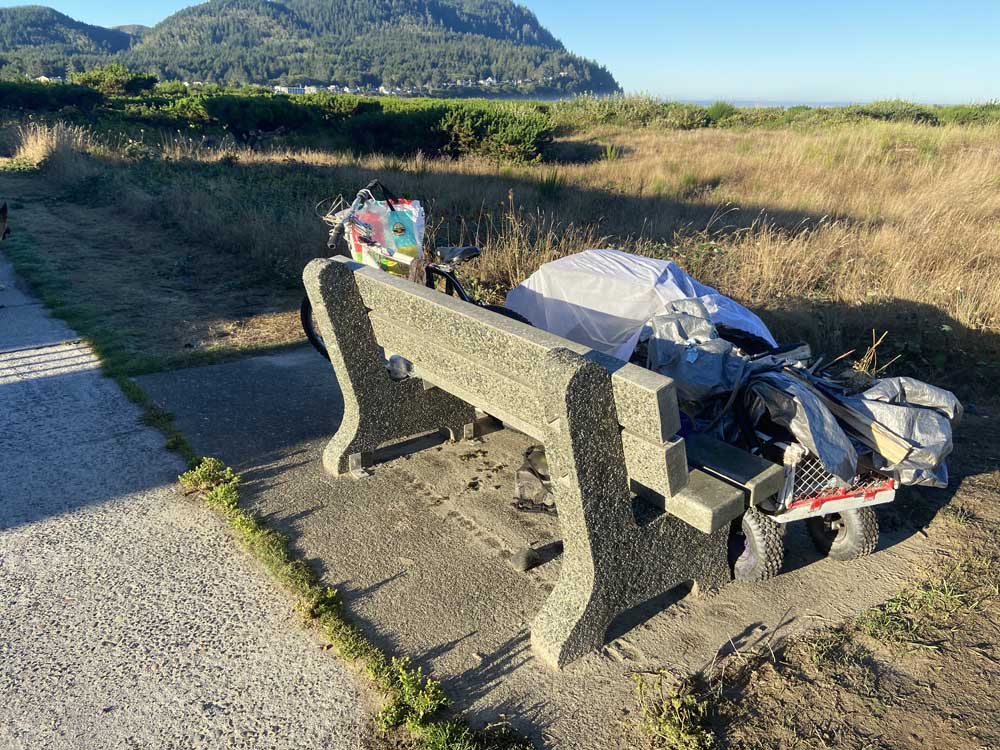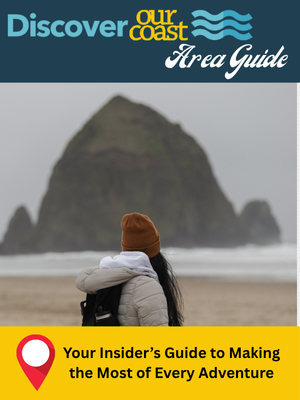Seaside delays homeless ordinance
Published 1:00 pm Tuesday, January 11, 2022

- An early morning beach scene on the Prom.
Seaside is not Coos Bay. And while Coos Bay, a city of 16,000 on the southern coast, has implemented a camping ordinance designed to address homelessness, Seaside is finding that a lack of camping sites or parking could make adoption of a similar ordinance, at least for now, untenable.
The ordinance, presented at Seaside’s December meeting, recognizes the federal court ruling, Martin v. Boise, as well as newly adopted Oregon laws that make it legal to camp overnight on publicly owned property. The ordinance makes it legal to park or camp — including under tents, tarps, sleeping bags and temporary huts — on most publicly owned property within the city limits between the hours of 8 p.m. and 6 a.m.
Seamus McVey, an advocate for the homeless, said Seaside’s proposed ordinance flies in the face of the Boise decision.
“I want to address publicly the horror — I don’t think that is overselling it — that I experienced in reading that,” McVey said at Monday’s City Council meeting. “I’m honestly a little ashamed that it was presented for a first reading without somebody having gone over this thing because there are parts of it that seem to be as though somebody read through the Martin v. Boise decision, took everything that it said you cannot do, and included it in this ordinance. It’s shameful, frankly. The fact that you’re penalizing acts that cannot be separated from homelessness, compounding daily, make it an undue burden. I’m not an attorney, but I’m pretty sure I could argue this one in court.”
Coos Bay ordinance
Seaside’s ordinances, like others throughout the state, have been struck down by the courts at this point. After a series of workshops and forums, Seaside hoped to adopt a camping ordinance similar to that in place in Coos Bay since October, designed to protect the safety of citizens and regulate use of publicly owned property by establishing time, manner, and place guidelines for trailers, tents, campers and RVs.
After approving the first reading of the ordinance last month, Seaside officials turned to Coos Bay leaders for input on the impacts of the measure.
Coos Bay Mayor Joe Benetti said the city created a homeless workgroup several years ago. Among solutions came travel assistance to homeless individuals back to where they have confirmed support and housing waiting. They enacted a vacant property registration ordinance, property watch program, a warming shelter policy, temporary shelter ordinance and most recently site preparation for an organized and supervised urban campground.
The Coos Bay ordinance gives permission to private property owners and rentals with permission, provides RV camping on city streets for up to 72 hours and allows camping along U.S. Highway 101. Camping in all parks is illegal — campers may be in the parks during the day but cannot stay overnight.
Coos Bay assistant city manager and treasurer Nicole Rutherford said the city has seen fewer parked vehicles, including RVs, since enactment. “We have had to tow a few vehicles, but in comparison to the number of vehicles we had within our city originally, the few tows are insignificant to the overall success.”
Seaside ordinance ‘premature’
Seaside Councilor Tom Horning said that without specific options for those affected, the ordinance was premature.
“I would think that an ordinance such as this could be used to define properties that are where we don’t want to see camping and be able to do something about it, but until we have the land or the facilities to serve as a refuge for people from inclement weather. I’m a little concerned about whether or how we should proceed,” Horning said.
There are too many unknowns in the document right now, councilor Dana Phillips said. “I think we’re going to be open for all sorts of criticism, and rightfully so.”
Councilor Steve Wright asked for further clarification on “time, manner and place” — key elements of the Boise decision — to determine where campers or vehicles could shelter in Seaside. He proposed additional workshops to consider the impact of the camping ordinance.
Wright was joined by Councilor Tita Montero in calling for additional workshops to consider the impact of the camping ordinance. “We need to look at the rest of our ordinances to see any changes made in this ordinance,” she said. “What do they either negate or add to the rest of our ordinances? There’s a lot more thought that goes into this.”
Council members Montero, Horning, Wright and Phillips, along with Randy Frank and Mayor Jay Barber, voted to schedule a workshop prior to the next council meeting. David Posalski was absent.
“We’ve been reluctant since the Boise decision to do any really aggressive enforcement of camping in neighborhoods for fear that we would be sued and that we would be subject to lawsuits,” Barber said. “It could be very painful for the city. I don’t see how this ordinance relieves us in any way of that kind of liability.”





